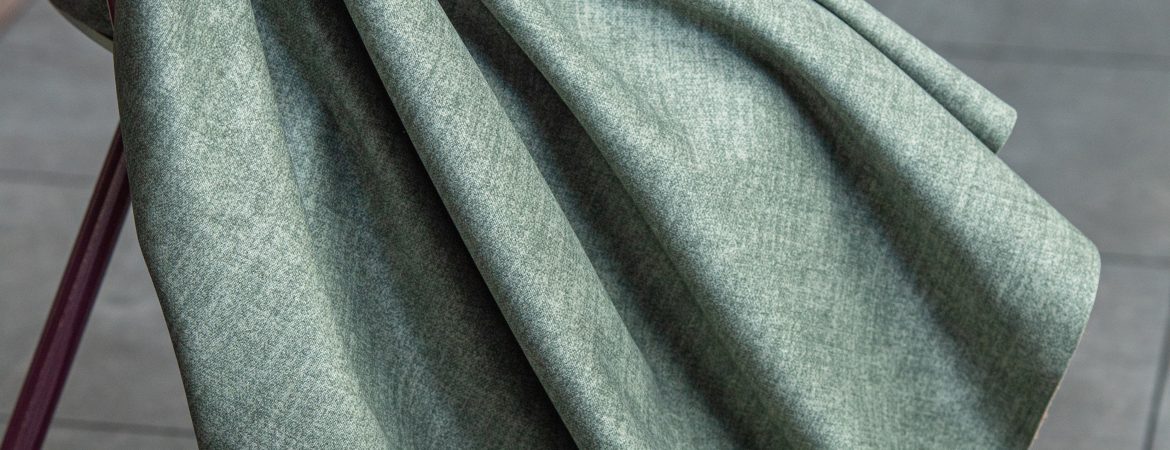
Ensuring recycled materials in sustainable textiles
How can you be sure and confident that this is indeed the case? To guarantee that recycled materials have been used for sustainable textiles, there are the following steps you can take;
Ask the manufacturer or seller about the sustainable textile
Manufacturers and sellers should be able to provide you with information about the materials used for production of the fabric. Ask them about the source of the materials and if they have been reused.
Check if the textile meets sustainability certifications
Look for certifications: There are various certifications that guarantee a product is made from recovered raw materials. One example is the Global Recycled Standard (GRS) certification, which indicates that a product contains at least 50% recycled material and meets stringent social and environmental requirements.
Buy from a reputable source known for using recycled materials
Consider purchasing from a trusted source: Buy from companies that have a good reputation for sustainability and responsibility. Companies that actively disclose their sustainability practices are likely more reliable. FABRAA is transparent about the impact, origin, and production methods. For example, how do we go from a plastic bottle to a soft upholstery fabric? We involve our partners and followers in the complete process and we are transparent about origin and production processes.
Check labels and look for recycled materials
Inspect labels and tags: Some products have labels or tags indicating they are made from recycled materials. Look for information about the percentage of sustainable material used. FABRAA provides a detailed product passport for each item, containing all specifications and composition, among other information. Additionally, almost all upholstery fabrics have a GRS certificate.
By following these steps, you can be certain that the upholstery fabric you purchase is genuinely made from reused raw materials.
What is a GRS certificate?
The Global Recycled Standard (GRS) is an international certification standard for products made with sustainable materials. The GRS certificate is a chain-of-custody certification system. This means that the certificate applies to the entire production chain, from manufacturing to the end product.
the certificate requires all parties in the chain to meet the set standard regarding material use, social and environmental impact and transparency. This includes manufacturers of the recycled materials, manufacturers of finished products, distributors and retailers.
Reliable recycled fabrics: Assurance for consumers and businesses
Chain-of-custody certification ensures traceability and verifiability of the recycled content in the end product. The certificate also imposes requirements for communicating recycled content and sustainability to consumers, contributing to transparency and trust.
The GRS certificate provides assurance not only for consumers but also for companies aiming to meet sustainability goals and to take responsibility for a sustainable future.
Striving for increased use of recycled materials
The GRS certificate was developed by the Textile Exchange, an organization dedicated to promoting sustainable practices in the textile industry. The standard sets requirements for traceability and content of the products used, as well as the social and environmental conditions under which the materials are collected and processed. Products that meet the GRS standard can be labeled as “GRS certified.” The standard helps to ensure that products are responsibly sourced and produced in an environmentally and socially responsible manner.
When you purchase a fabric with a GRS certificate, it guarantees that:
>The recycled material is verified
The material in the fabric has been checked and meets the ISO definition of “recycled.” A product contains a minimum of 50% recycled raw materials, which can be either pre-consumer or post-consumer material.
>The product is responsibly produced
Products with a GRS certificate comply with stringent social and environmental requirements. For example, certain harmful chemicals are not allowed to be used.
>Traceable material with a credible certificate
This certificate is a chain-of-custody certificate, meaning it is verified at every stage of the supply chain, and all suppliers are also certified. The certification is issued by an independent organization.
What is a transaction certificate?
Transaction certificates are documents issued to confirm the completion of a transaction or exchange of goods/services. In the context of GRS certification, transaction certificates must comply with GRS standards, ensuring that no more material is sold than purchased. The certificate serves as evidence of compliance with GRS requirements and provides assurance to buyers and sellers in the recycling industry.
By having your products certified by a third party, you can provide additional assurance regarding the sustainable content in the product. It offers buyers of the fabric many additional guarantees, including the quantity of recycled material in the upholstery fabric.
Greenwashing can restrict the production of sustainable textiles – here’s how:
Through the use of transaction certificates and GRS certification, we prevent greenwashing. This provides our customers with the assurance that they are genuinely purchasing a more sustainable product. Greenwashing is the act of misleading consumers by making false or exaggerated claims about the environmental benefits of a product, service, or business practice. It is a marketing tactic that companies use to create a positive image of themselves as environmentally friendly, even if their products or practices are not truly eco-friendly. With the GRS certificate you can be sure that sustainable textiles are made from recycled materials.